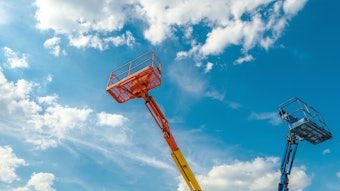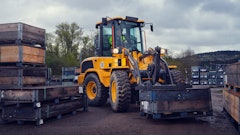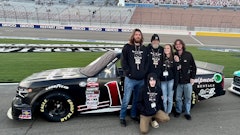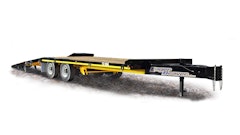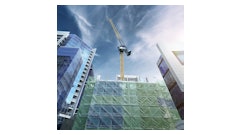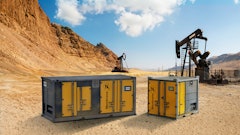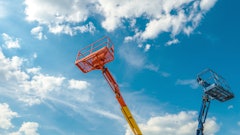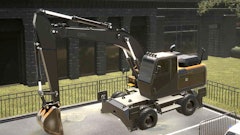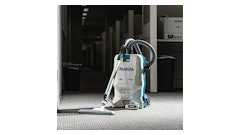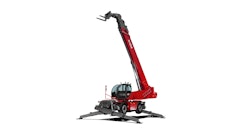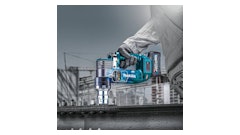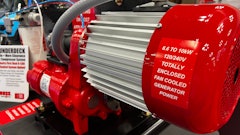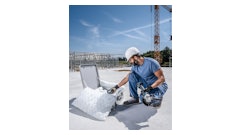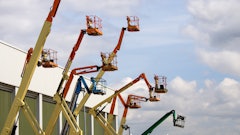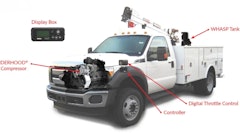
Safety is important with any machine, but when the workstation is elevated above the ground, safety becomes even more crucial. How can a rental business ensure a safe rental for its customers?
Training is always critical. Both your rental employees and your customers need to be trained on the proper operation of any aerial equipment.
"In my opinion, everyone involved in the operation of this type of equipment should have some formal operator safety training," says Tony Deatherage with Snorkel USA. "This is important because, one, a trained operator is more aware of the dangers involved in the operation of the machine and less likely to get into a situation where they might get hurt or cause collateral damage; and two, at any time anyone in the organization (sales, service, front counter or parts personnel) may be asked a question about how to operate that piece of equipment. If someone is asked, they need to be able to give an informed answer, not guess and possibly put that operator in danger."
What's your responsibility?
When it comes to any type of elevated work platform training, keep in mind the revised ANSI standard that defines rental business requirements for scissor lift training. The standard - ANSI/SIA A92.6-2006 Self Propelled Elevating Work Platforms - states "the dealer (rental business) must offer 'appropriate training' to facilitate owners, users and operators to comply with the requirements set forth in this standard."
Eric Ludwig, product manager with Genie Industries, says it's the responsibility of the user to accept that offer or to provide training by some other means.
The dealer is also responsible upon delivery to provide, by means of a qualified person, "familiarization upon delivery" to "a person designated by the receiving entity to accept the aerial platform."
Basically this means that, when renting to a customer, the rental business is only responsible for familiarizing the renter with the machine. It's up to the renter to ensure the operator of that machine is properly trained.
Keep in mind, familiarization is specific to a machine, while training is general to all like machines.
According to Deatherage, in addition to making sure a renter has been familiarized to the equipment at the time of delivery, rental businesses should also:
- Make sure the designated person, qualified person or operator knows where the operators' manual is located.
- Make sure all manuals on the machine are specified by the manufacturer.
- Review all operator controls - upper and lower - with a designated person, qualified person or operator.
- Review all safety devices specific to the model being delivered.
Rental employee training
So, as a rental business, you only have to ensure that you have familiarized the customer with the scissor lift. But do your rental employees need to be trained?
When a rental business employee is directed to load, unload, inspect or demonstrate a machine, then the rental business needs to ensure that its employee has been trained and familiarized with the equipment.
"Anyone within a rental company's organization who may be expected to operate aerial platforms as part of their employment duties (truck driver, mechanic, etc.) must be trained and appropriately familiarized with the proper operation of the equipment they will be using," says Brad Boehler, director of product safety with Skyjack. "The [rental business] has a moral and regulatory duty to ensure that its employees have received proper training."
All the manufacturers of aerial equipment sourced for this article offer some type of training, including operator training and train-the-trainer courses.
Training typically covers regulations, equipment and operational practices. "Classes cover student understanding of the applicable ANSI standards and OSHA regulations to help ensure compliance with respective responsibilities," says Todd Truax, director of training with JLG Industries Inc. "In addition, knowledge of the equipment and understanding of the potential hazards involved with operation [are also taught.]"
Fall protection
Fall protection is a controversial topic within the industry, say sources. According to ANSI, the guardrails on the scissor lift serve as the fall protection. However, if local or worksite rules are stricter than the ANSI regulations, then the operator has a choice of using a fall restraint or fall arrest system.
"Within the standards and regulations, fall protection is not required on scissor lifts, as the guardrail system provides protection from a potential fall," says Boehler. "Rental businesses have no responsibility to supply fall protection with an aerial platform, but should offer appropriate fall protection choices to customers."
Truax agrees it's a good idea for rental businesses to make available fall protection for sale to support the equipment that's rented. This helps the rental customer be in compliance with its responsibilities as an owner, user and/or operator.
"The rationale is this," he explains. "Fall protection is 'personal protective equipment,' just the same as foot protection, eye protection, respiratory protection, etc., and is always the responsibility of the end-user. This required personal protective equipment [for scissor lifts] is no different."
Protecting yourself
How do you know if the person signing the contract or accepting delivery of the scissor lift is going to be the person operating it? There is no way you can always know, but there are ways to protect yourself from potential liability.
"Ultimately, training is the responsibility of the employer and not something that the rental company can control," says Boehler. "However, rental companies should have policies regarding the competency of their clients and should protect themselves with appropriate language in the rental agreement."
Rental businesses should always document the appropriate familiarization upon delivery of the unit.
"Dealers are responsible for keeping records of all training provided for a four-year period," says Ludwig. "It's important to note that 'familiarization' does not qualify an operator to operate an aerial platform unless that operator has already received training and has been determined to be qualified by demonstrated proficiency under the observation of their employer."
Other protection for rental businesses, Boehler says, should include:
- Ensuring the units delivered have been properly maintained and are fit for service
- Having an appropriate rental agreement in place, one that has been reviewed by legal counsel prior to use
- Offering applicable training to rental customers and their employees
Safety should always be in the forefront when in comes to your customers. The key to scissor lift safety is proper training for both your customers and employees. Partner with your suppliers to keep abreast of the latest regulations and operator training, and you'll have safe scissor lift rentals.
|
Do not operate unless ... 2. Always perform a pre-operation inspection. 3. Always perform function tests prior to use. 4. Inspect the workplace. 5. Only use the machine as it was intended. And always remind customers to do the following:
Information provided by Genie Industries. |





